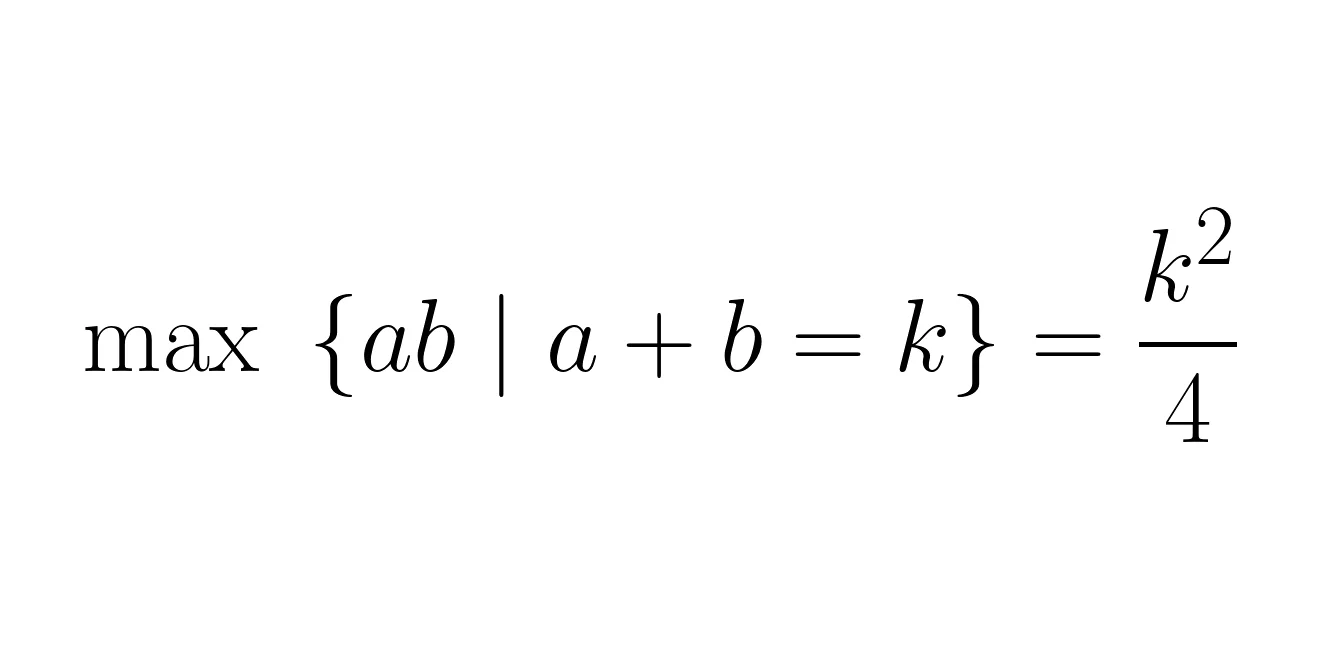
Twitter proof:
— Mathspp (@mathsppblog) November 5, 2020
Take s = k/2. If a = s+h then b = s-h, from which we get that ab = (s+h)(s-h) = s^2 - h^2. Because we know h^2 >= 0, ab is maximised when h = 0, that is a = b = s = k/2.https://t.co/9ypegSMF2F
Do you have an idea for a twitter proof? Let me know in the comments below!
Become the smartest Python 🐍 developer in the room 🚀
Every Monday, you'll get a Python deep dive that unpacks a topic with analogies, diagrams, and code examples so you can write clearer, faster, and more idiomatic code.
